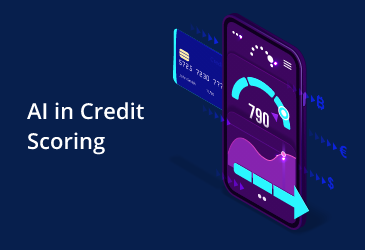Artificial intelligence (AI) is transforming the financial industry, particularly in the area of credit scoring. The adoption of AI-based credit scoring is enabling financial institutions to make more accurate, fair, and efficient lending decisions. This innovative approach leverages advanced data analytics and machine learning algorithms to assess creditworthiness, offering a significant improvement over traditional credit scoring methods.
Enhanced Accuracy and Fairness
Traditional credit scoring models often rely on a limited set of data points, such as credit history and income levels, which can be insufficient for accurately assessing an individual’s creditworthiness. AI-based credit scoring, on the other hand, can analyze a vast array of data sources, including social media activity, online behavior, and transaction history. By incorporating these additional data points, AI systems can create a more comprehensive and accurate credit profile, reducing the likelihood of errors and biases.
Real-Time Decision Making
One of the key advantages of AI in credit scoring is its ability to provide real-time decision-making. Traditional credit assessments can take days or even weeks, causing delays in the lending process. AI-powered systems, however, can analyze data and generate credit scores almost instantly. This enables lenders to make faster lending decisions, improving the overall customer experience and increasing operational efficiency.
Improved Risk Management
AI-based credit scoring also enhances risk management for financial institutions. By analyzing a broader range of data points and identifying patterns that traditional models might miss, AI can more accurately predict the likelihood of default. This allows lenders to better assess risk and make more informed lending decisions, ultimately reducing the incidence of bad loans and improving the stability of their loan portfolios.
Financial Inclusion
One of the most significant benefits of AI-based credit scoring is its potential to increase financial inclusion. Traditional credit scoring methods often exclude individuals with limited or no credit history, such as young adults or those in developing economies. AI can analyze alternative data sources to assess the creditworthiness of these individuals, providing them with access to financial services that they might otherwise be denied. This can help bridge the gap between the unbanked population and formal financial systems.
Dynamic Credit Assessment
AI-based credit scoring systems are dynamic and can continuously update credit scores based on new data. Unlike traditional models, which rely on static data that may become outdated, AI systems can incorporate real-time information, providing a more accurate and up-to-date assessment of an individual’s creditworthiness. This dynamic approach allows lenders to respond quickly to changes in a borrower’s financial situation, improving risk management and customer service.
Conclusion
The integration of AI in credit scoring is revolutionizing the financial industry by enhancing accuracy, fairness, and efficiency. As AI technologies continue to evolve, their impact on credit scoring is expected to grow, offering even more opportunities for innovation and improvement. To fully leverage the benefits of AI-based credit scoring, financial institutions should consider engaging with artificial intelligence consulting services to develop and implement tailored AI solutions.
By adopting AI-based credit scoring, lenders can make more informed lending decisions, improve risk management, and increase financial inclusion, ultimately leading to a more efficient and fair financial system. The future of credit scoring lies in the intelligent application of AI technologies, promising a more accurate and inclusive approach to assessing creditworthiness.
